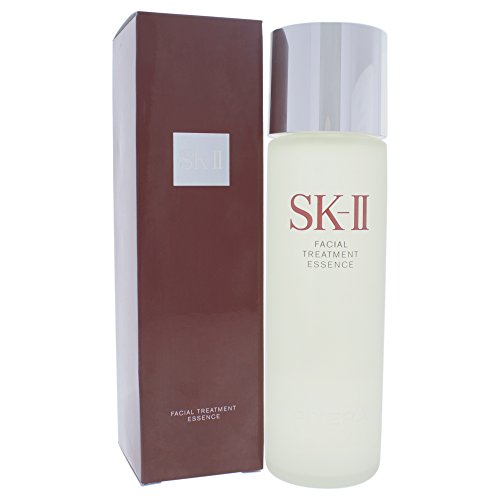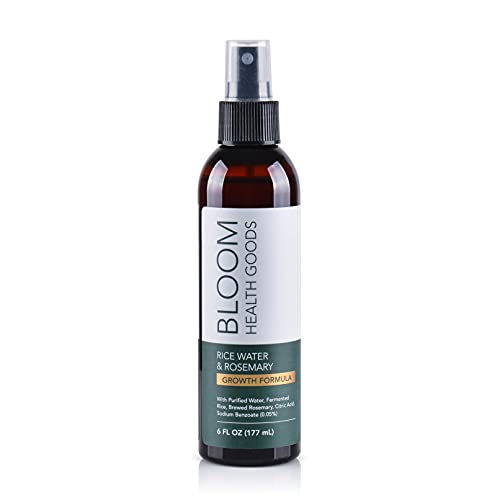Some people use rice water as a treatment for seborrheic dermatitis because it is thought to help reduce inflammation and itching. The water contains potassium and other minerals that are thought to help treat seborrheic dermatitis.
Let’s take a deep dive:
- What is rice water?
- Is rice water good for seborrheic dermatitis?
- Is rice water antifungal?
- Is rice water good for itchy skin?
- Can you put rice water on your scalp?
- How to make a rice water rinse at home?
- How often should you use rice water for seborrheic dermatitis?
- How long does it take for rice water treatment to work?
- Are there any side effects of using rice water for seborrheic dermatitis?
- To wrap up
What is rice water?
Rice water is the starchy water left over after cooking or if rice is left to soak. It’s a great natural option for people who are looking to soothe their skin.
The liquid can be easily made at home and has been used by women in China, Japan and Southeast Asia for centuries. If you leave the rice to soak at room temperature for 12 to 24 hours, this allows the rice water to ferment and all the vitamins and minerals to come out of the grains.
The fermentation process enhances the benefits of rice water and is more effective than ‘fresh rice water’ as a substance called pitera is formed. Pitera is rich in beneficial compounds and even has anti-aging properties.
Some global skincare brands even use rice water as their star ingredient. Ever heard of SK-II?
Is rice water good for seborrheic dermatitis?
Some research suggests that rice water may have a soothing effect on the skin and scalp–making it ideal for those with seborrheic dermatitis. Rice water is an inexpensive option to try when treating this condition, since it’s readily available and relatively safe to use without side effects.
Rice water contains inositol, amino acids, B vitamins, vitamin E, zinc, selenium and antioxidants – all beneficial compounds to help heal seborrheic dermatitis.
The water is gentle and soothing, making it ideal for those with sensitive skin. It also helps cool and refresh the skin in hot weather. Rice water is also a natural anti-inflammatory agent which can help reduce inflammation caused by seborrheic dermatitis.
In fact, a 2002 study found that rice starch added to bath water helped damage skin heal and fermented rice water has antifungal properties that help improve dandruff.
Is rice water antifungal?
According to a 2013 laboratory study, the bacterium Bacillus cereus present in day-old rice water can produce antibiotics that inhibit the growth of Malassezia furfur- the fungus responsible for dandruff.
Another study compared the efficacy of cow’s urine, lemon, boiled rice water and other compounds in curing dandruff. This study found boiled rice water to be an effective anti-fungal agent. Interestingly, lemon was also effective but only for a short time.
Is rice water good for itchy skin?
Rice water is gentle and calming. Compounds found in rice water like zinc and selenium is thought to help soothe the skin.
Fermented rice water is more beneficial than regular rice water because the fermentation process produces enzymes that help the skin maintain its natural microflora. In fact, fermented rice has antifungal properties and can keep Malassezia in check.
The enzymes in fermented rice water also help to break down dead skin cells so they can be more easily removed. Fermented rice water should have a slightly sour smell, which indicates it has been fermented.
Can you put rice water on your scalp?
It turns out that rice water can be used as an effective treatment for seborrheic dermatitis-but only if you apply it correctly. You should only use rice water once per week, and make sure to rinse it out thoroughly afterwards. If you use rice water too often, it can cause buildup, scalp irritation and brittle hair.
How to make a rice water rinse at home?
It’s remarkably easy to make rice water at home. If you suffer from SD, I definitely recommend you try this natural remedy. Rice water will help to soothe and calm your skin and scalp and it may also help to get rid of dandruff.
Rinse a cup of white rice in cool water until the water runs clear. Add the rinsed rice to a pot and cover with fresh cold water. Let it soak overnight. Strain the rice grains out the next day and you’re left with home-made rice water!
You can let your rice water soak for up to 24 hours for it to ferment (turn sour). This enhances its skin benefits.
If you can’t wait, you can also boil 1 cup of rice in 4 cups of water. Once the rice is cooked, drain the water to make rice water.
The third, and by far my favorite option because I’m lazy, is to use rice tea bags:
How often should you use rice water for seborrheic dermatitis?
If you are using rice water to treat your seborrheic dermatitis, it is important to use it regularly. This will help keep the yeast balance and prevent future flare-ups. Rice water is gentle enough to be used twice a day if you want to.
The only limiting factor is that you can’t keep home-made rice water for long as it will get more sour as the days go by. You can keep it in the fridge up to 2 days but I find it a huge hassle to go to my fridge everytime I want to use rice water. This is why I prefer commercial rice water formulas even though it’s way more expensive than making my own.
How long does it take for rice water treatment to work?
Some people say that it takes a few weeks for the treatment to show results, while others claim that it may take up to two months. However, it is important to keep in mind that the rice water treatment has not been scientifically validated and there is no guarantee that it will work for everyone.
Are there any side effects of using rice water for seborrheic dermatitis?
The most common side effect is that rice water can be an allergen and cause irritation. Rice water can also cause hair to feel greasy or heavy if you use too much rice water.
If you leave rice water on your scalp, over time it may lead to buildup and scalp irritation. The starch component of rice water is heavy and can lead to hair brittleness and damage over time.
If you also have eczema or atopic dermatitis, be careful when using fermented rice water as you may react to its compounds. Test a small patch of skin first before applying it to your entire face or scalp.
To wrap up
Rice water is a great natural remedy for seborrheic dermatitis. It helps to soothe and moisturize the skin, and it’s easy to make at home. If you are suffering from seborrheic dermatitis, give rice water a try and see if it helps to improve your symptoms.
 Check it out on Amazon
Check it out on Amazon![[I'm From] Rice Toner, 5.07 fl oz | 77.78% Rice Extract from Korea, Glow Essence with Niacinamide, Hydrating for Dry Skin, Vegan, Alcohol Free, Fragrance Free, Peta Approved, k Beauty Toner [I'm From] Rice Toner, 5.07 fl oz | 77.78% Rice Extract from Korea, Glow Essence with Niacinamide, Hydrating for Dry Skin, Vegan, Alcohol Free, Fragrance Free, Peta Approved, k Beauty Toner](https://m.media-amazon.com/images/I/31Oi-V7viZL._SL500_.jpg) Check it out on Amazon
Check it out on Amazon Check it out on Amazon
Check it out on Amazon Check it out on Amazon
Check it out on Amazon Check it out on Amazon
Check it out on Amazon Check it out on Amazon
Check it out on Amazon
Pingback: Is Avene good for seborrheic dermatitis?